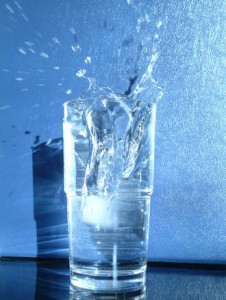 All living organisms need water to survive, and us humans are no exception. From individual cells to organs and bodily systems, H2O plays a key role in our health and well-being. According to a recent study, though, as many as 3 in 4 Americans go throughout their daily lives in a mild state of dehydration. Dehydration – even mild cases – can open the doors to a wide range of adverse conditions, which is something we’re going to discuss in today’s blog post.
All living organisms need water to survive, and us humans are no exception. From individual cells to organs and bodily systems, H2O plays a key role in our health and well-being. According to a recent study, though, as many as 3 in 4 Americans go throughout their daily lives in a mild state of dehydration. Dehydration – even mild cases – can open the doors to a wide range of adverse conditions, which is something we’re going to discuss in today’s blog post.
Regulates Internal Body Temperate
One of the many ways in which water affects the body is by helping to regulate its internal temperature. Heat stroke is a very serious, and sometimes life-threatening, condition that occurs when a person’s internal temperature exceeds its normal range of 98.6°F. The good news is that heat stroke, fatigue and exhaustion can often be prevented or mitigated through proper hydration.
Reduces Risk of Heart Disease
Hydration (or lack thereof) also plays a key role in heart health. According to the Centers for Disease Control and Prevention (CDC), heart disease remains the number one cause of death among men and women in the US. Each year, more than 600,000 people in the US lose their lives to this disease. By drinking plenty of water, however, you can reduce your risk of heart disease.
“Keeping the body hydrated helps the heart more easily pump blood through the blood vessels to the muscles,” wrote the American Heart Association (AHA) on its website.
Flushes Waste
Yet another reason why you should drink plenty of water is because it helps to flush waste from the body. When waste settles within the body, it can lead to digestive issues and urinary tract infections. Problems such as these are easily prevented by drinking water.
Hydration and Your Spinal Health
Yes, water even affects your spinal health. The soft and spongy spinal discs are designed to absorb water and nutrients through a processes known as imbibition. When they don’t receive enough H2O, they become susceptible to herniation, a condition characterized by the herniating of fluid within the intervertebral discs.
How Much Water Should I Drink?
If you asked ten different doctors, you would probably get ten different answers. With that said, a good rule of thumb to follow is to drink a minimum of eight, 8-ounce glasses of water per day. This isn’t an exact formula, but it’s a good starting point nonetheless. If you are physically active and/or spend more time outside on a particular day, you’ll probably want to drink more to make up for water loss via perspiration.
